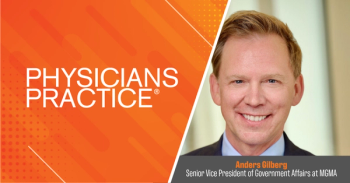
Changing habits
Jennifer Frank, MD, reflects on the struggles she and her patients face when adopting healthy lifestyle habits and why doing so remains worth the effort.
Editor’s Note: Physicians Practice’s blog features contributions from members of the medical community. These blogs are an opportunity for professionals to engage with readers about a topic that is top of mind, whether it is practice management, experiences with patients, the industry, medicine in general, or healthcare reform. The opinions are that of the writers and do not necessarily reflect the opinions of Physicians Practice or UBM.
Like most Americans and all physicians, I know what I’m supposed to do to stay healthy, feel energetic, avoid disease, and improve my well-being. I should be eating a healthy diet; putting my phone down; limiting alcohol, caffeine, and sugar; getting regular exercise; meditating; sleeping; having meaningful social interactions; working less; resting more; and so on. Typically, I have a tenuous balance of healthy and unhealthy behaviors. I got eight hours sleep last night, but only because I had gotten too little sleep the previous four nights. I exercised, but not for as long or as vigorously as I probably should. My lunch was healthy, but I had a chocolate bar for dessert. I had an extra cup of caffeine this morning. I’m letting the little things get to me, and my afternoon hasn’t even started.
Given my own struggles with adopting healthy lifestyle habits, I wonder how well or how sincerely I advocate for these changes with my patients. I suspect that I tend to cut them the same slack I cut myself–these are difficult things to do, many things get in the way, and the easier way is just, well, easy. One condition I try to convince my patients to address with lifestyle and behavior changes rather than medication is insomnia. The successful interventions–eliminate caffeine, exercise, manage stress, get the TV out of the bedroom–are difficult. Conversely, we have pills which are easy to take. What coffee does chemically to wake us up in the morning, medication can do to help us fall asleep. Simple and effective.
However, the medications do not always work. Sometimes they have side effects. Some of my patients are frustrated by dosing limitations because they feel two pills will work better than one. It’s often easier for me to sign the prescription than to do the coaching and explaining and cajoling. Recently, two of my patients reported that they had weaned themselves off most of their sleep medication since I wasn’t able to keep increasing the doses. Both are doing great with the lifestyle approach. They have cut out caffeine and started exercising. They sleep better than they did with chemical assistance, do not feel groggy the next morning, and feel better.
Changing habits is one of the most difficult undertakings we pursue. There are well worn neuronal paths that almost program our behavior. Getting out of the figurative rut we’ve plowed in our brain requires attention, dedication, and perseverance. Personally, I often struggle with getting rid of bad habits and establishing good ones. My belief in my own efficacy no doubt impacts my belief in my patients’ ability to make substantive changes.
Changing habits remains worth the effort, both on a personal level and as a physician, because healthy lifestyle changes are effective and result in greater well-being. Sometimes I prove that to my patients and sometimes they prove it to me.
Jennifer Frank, MD, is a family physician and physician leader in Northeastern Wisconsin and finds medicine still to be the best gig out there. Married with four kids, she is engaged in intensive study and pursuit of work-life balance.
Newsletter
Optimize your practice with the Physicians Practice newsletter, offering management pearls, leadership tips, and business strategies tailored for practice administrators and physicians of any specialty.






